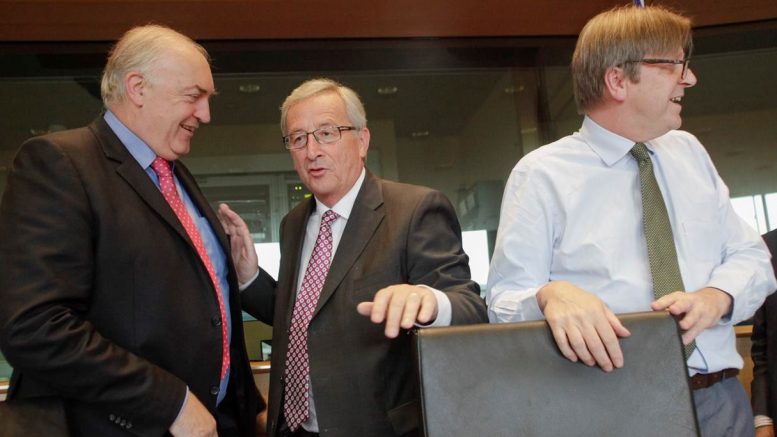The European MP who proposed associate European Union citizenship for United Kingdom nationals after Brexit last night hit back at critics who said such a move was unlikely, saying anything was possible with “political goodwill”.
The Luxembourg MEP, Charles Goerens, told Chief-Exec.com that he hoped the idea would continue to gain support not just from parliamentary colleagues but also from groups within “civil society” who could exert pressure on those in government.
Associate EU citizenship has gained considerable support among UK citizens hoping to maintain ties with the European Union after Brexit. However, this week it was reported in the UK press that the idea had been condemned by experts and EU officials as being unworkable, requiring the backing of a majority of MEPs, a change to EU treaties – an arduous and lengthy legal process – and the support of the 27 remaining member states.
When the wise man points at the Moon, the idiot looks at the finger
Mr Goerens, who called last month for the establishment of a new category of EU citizenship described the criticism as an ongoing “cacophony”.
“Foremost [it is] a question of political goodwill and then only it will become a legal question,” he said.
“I launched this idea [of an associate EU citizenship] and I hope it will garner increasing support – not only with politicians but also with groups within civil society – who can also exert political pressure around this issue … Then we should be able to find the means to implement it.”
Mr Goerens said his critics were “short sighted”, warning that it was important not to view the proposal simply through a legal prism.
He cited a Chinese proverb to illustrate his point: “When the wise man points at the Moon, the idiot looks at the finger.”
An associate citizenship would allow citizens of former EU member states to opt in and retain for a fee their EU citizenship along with its associated benefits, such as freedom of movement and the right to reside and work across the EU, as well as a vote in European Parliament elections.
Mr Goerens said that he supported a “soft Brexit”, adding that a “hard Brexit” without access to the single market would be “catastrophic” for the UK. But, regardless of the final outcome, Europe should maintain a “very close relationship” with the UK after it leaves the bloc, which should also mean “freedom of movement for its citizens across the EU”.
The European Parliament’s chief Brexit negotiator Guy Verhofstadt (pictured above, right) said during a meeting of the European Parliament’s Constitutional Affairs Committee (AFCO) in Brussels last Thursday that the proposal for associate EU citizenship “will be on the table [in] the upcoming Brexit negotiations”.
“The ability to keep European citizenship for those who risk losing it … will be discussed at the moment of the Parliament’s resolution right after the triggering of Article 50 in March,” Mr Verhofstadt, leader of the Group of the Alliance of Liberals and Democrats for Europe (ALDE), told the committee.
Mr Goerens, also a member of the ALDE and AFCO, agreed with Mr Verhofstadt’s decision to include the associate EU citizenship proposal in the upcoming Brexit negotiations. The decision was taken last Wednesday after a vote in the House of Commons, in which most MPs agreed to support the UK Prime Minister Theresa May’s plan to trigger Article 50 by the end of March 2017.
“The prospect that Article 50 will be invoked has [now] become very real indeed,” Mr Goerens said in an earlier statement.
“The European Parliament will define its position on the Brexit agreement through a resolution during spring [March] 2017. This seems to be the best opportunity to give Brexit negotiator Guy Verhofstadt the possibility to enforce the associate EU citizenship.”
By Katia Yezli




